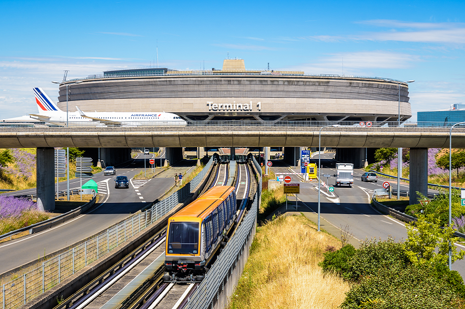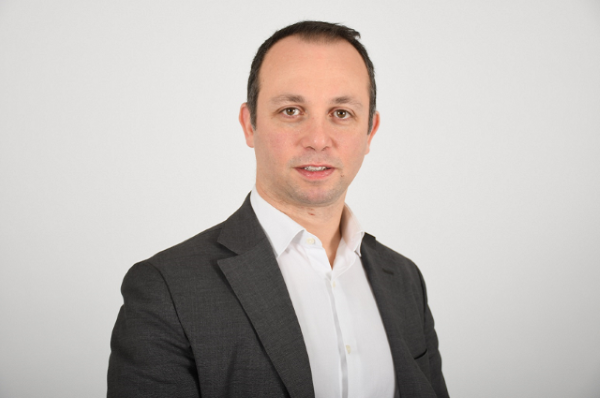
There is a persistent challenge with airport infrastructure costs in Europe. Airport charges comprise around 15% of total air transport costs in the region. Nowhere is this more apparent than in France, where larger airports achieve some of the highest profit margins in the industry. With airports having a quasi-monopolistic hold on passengers, independent regulation of their services and costs is vital. Yet even the current weak level of airport regulation in France is under threat. We spoke to Robert Chad, IATA’s Area Manager for France, Belgium, the Netherlands, and Southern Europe, to explain what is at stake.

The French airport sector is requesting reforms to their regulatory oversight. What exactly are they asking for?
In 2016, after years of pressure from airlines, French airports were finally subject to an independent regulator, now called the Autorité de Régulation des Transports (ART). Although its powers were limited, the ART has issued decisions challenging some airports in France to justify their level of charges. This has resulted in airports lobbying to be exempted from regulation. Or in other words, to be allowed to extract profits as they see fit.
The proposals from airports vary, from restricting ART's powers to completely removing regulation. Airports want to move to “dual till”, in other words, not to allow the regulator to decide which activities should be regulated. Airports want to exclude certain lucrative activities, such as revenue from shopping or car parking, which would give airports greater profits without any obligation to reduce the fees charged to airlines and passengers. They also want to remove provisions in the law that protect consumers against rapid increases, disregarding ICAO policy requiring any changes to be gradual.
Do IATA and airlines operating in France have concerns about this approach? What would be the impact if these changes went through?
Removing regulation would be a huge detrimental step for airlines and passengers. Airport charges in France are already higher than they should be. For example, in 2018 one airport dropped charges by 33% and it still made a significant profit. Removing regulation would provide no benefit for the consumer, or for airlines. Don’t forget that in France, the quality of service and investments are not subject to economic regulation. The only reason to remove regulation in France or reduce its scope is to extract more money from customers and increase profits. Airports don’t need double-digit returns to continue to invest in infrastructure.
Can you explain about significant market power? What is it and how does it apply to airports?
Significant market power (SMP) is when a company sets prices or adjusts quality without significantly affecting demand. The company isn’t necessarily a monopoly, but there’s insufficient competition to keep prices and quality competitive. Airports, particularly larger ones, face little competitive pressure. Unlike airlines where new entrants can provide different offers and force incumbents to compete on price and quality – there are no new entrants in the airport market.
Both passenger and cargo traffic are driven by location – and that’s where airports get their market power. Airport charges don’t have a direct short-term impact on the air transport market, the effect of abuse is seen over the longer term. Only 12% of passengers pick an airport globally based on facilities and services, and that number drops to 3% for connecting airports. As reflected in the IATA Global Passenger Survey 2022, passengers focus on location, price and travel time. That’s why in France, 85% of respondents to a MOTIF IATA survey in June 2022 indicate that they usually depart from their local airport.
In France in particular, we have seen abuse of that power. Airport charges have pretty much only gone up in France – with very few exceptions. Inflation impacts some airport costs, but most large French airports have increased charges by more than inflation. The ART has prevented extreme abuse, but even before the current inflationary period, requests for increases of 10% or more were submitted by airports who were already making healthy profits.
Given the market power French airports have, what should be the solution for the regulator? What do IATA and airlines in France want to see happen?
In a way, there is no independent regulator with the right powers, and that’s the heart of the problem. The ART is legally separate from the government, but the State has a lot of tools to prevent them from regulating. In other sectors (like highways for example), the State empowered the ART to look into finances, investments and quality. That’s not the case for the airports for which the ART doesn’t even have complete scope over matters relating to charges. For example, if an airport is pricing abusively, the ART has to wait 24 months before stepping in.
IATA and airlines want the State to completely empower the ART to regulate prices, quality, and investments. We want a fully independent regulator as we see in neighboring countries. That won’t necessarily lead to charges decreasing, but it will lead to more efficient and sustainable airports that earn a reasonable return on capital and provide the optimal quality of service.
What are the next steps?
A reform of the law is needed to fully empower the ART for the airport market. That means letting the regulator decide which airports should be regulated, what activities are regulated, and how quality, investments and charges are decided.
In recent months, France saw protest movements against the rising cost of living against the backdrop of companies announcing 14% returns on capital employed (ROCE). Major regional airports in France made between 8-14% in 2019 and some are set to soon return to those levels. There is even one airport who didn’t report a negative ROCE during the crisis! This situation cannot continue. Of course, airports need a reasonable rate of return in order to be resilient and invest but it doesn’t make sense that airports consistently report more profits than airlines despite facing lower risk.
We’re not alone in this fight. In the same MOTIF survey, we listened to what our French customers told us, and we hope the government will strengthen regulation rather than weaken it:
(MOTIF survey for IATA, French respondents, June 2022)
We will be engaging with French lawmakers as the damage to the French economy is significant and getting worse – in 2018 we estimated that by fixing the situation for Paris alone, it could lead to 1.5 billion euros of additional GDP and 19,400 jobs. Even if airports pay significant dividends or concession payments to the State, proper regulation won’t just yield higher economic growth. It will also ensure that the industry achieves its sustainability targets by making airports more efficient and stopping the excess returns which prevent airlines from investing in green technology.
Additional Information: